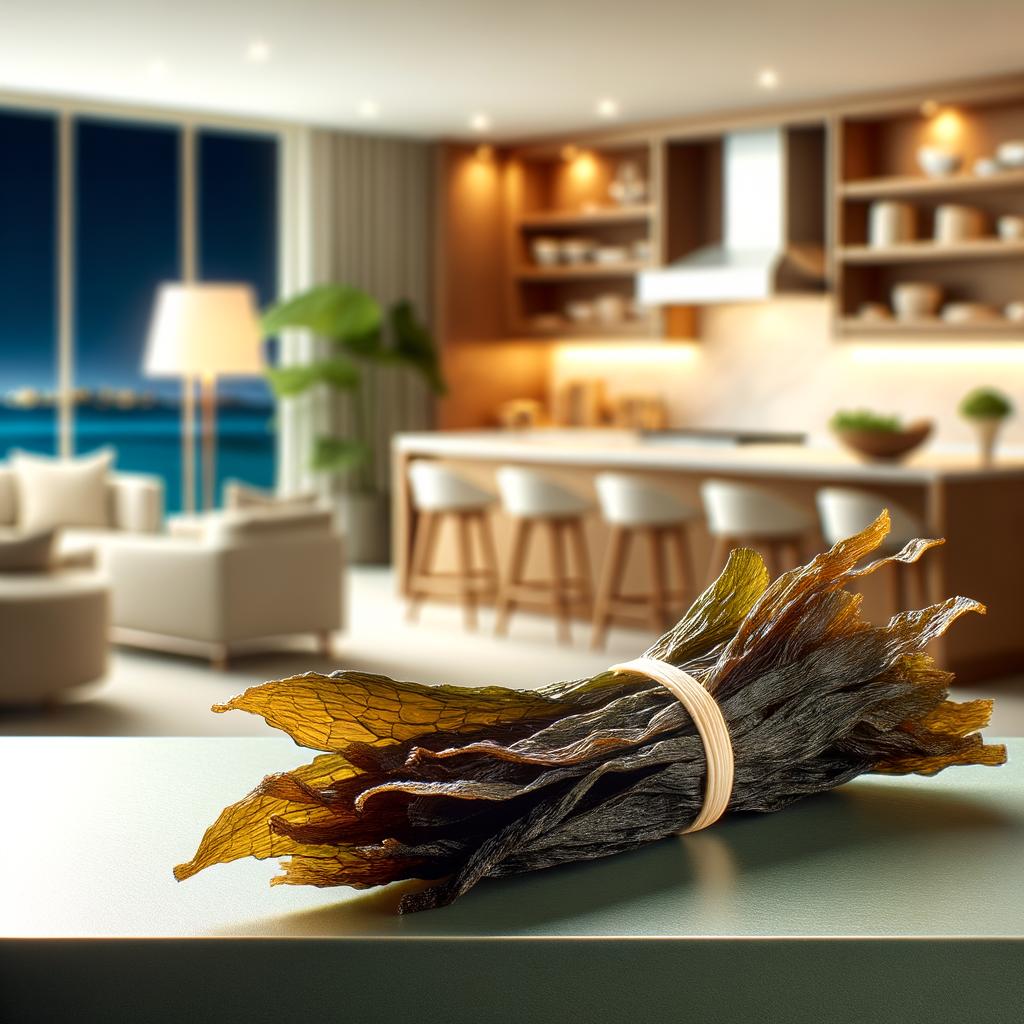Dried Kombu

Description
Dried Kombu, a variety of kelp, is a culinary gem from the sea. It is characterized by its dark, almost black color and a rough, leathery texture. When soaked, it transforms into a softer, pliable version of itself, revealing a deep green hue. Its flavor profile is unique, offering a subtle yet profound umami taste, often described as the very essence of the sea. The most striking characteristic of dried kombu is its ability to impart a rich, savory flavor to dishes, thanks to its high glutamate content, making it a natural flavor enhancer.
Primary Uses
In cooking, dried kombu is an indispensable ingredient in East Asian cuisines, particularly in Japan and Korea. It is the backbone of many broths and stocks, including the famous Japanese 'Dashi' and Korean 'Mu-guk'. It is also used to flavor and tenderize beans during cooking, and to pickle vegetables. Outside the culinary world, kombu has been used for its medicinal properties, particularly in traditional Chinese medicine. It is believed to aid digestion, reduce inflammation, and support thyroid function.
History
The history of dried kombu is as deep and fascinating as its flavor. It has been a staple in Japanese cuisine since the Jomon period (14,000–300 BC). Legend says that the first emperor of Japan, Emperor Jimmu, was so taken with kombu that he declared it a symbol of long life and well-being. Over time, its use spread to other parts of East Asia, and it became a symbol of hospitality and friendship. The tradition of gifting kombu, known as "Kombu of Joy," still exists in Japan, where it is often presented at weddings and other celebrations.
Nutritional Information
Nutritionally, dried kombu is a powerhouse. It is an excellent source of iodine, which is essential for thyroid function. It also contains a good amount of dietary fiber, calcium, and vitamin K. Notably, it is rich in antioxidants and provides a plant-based source of omega-3 fatty acids. In comparison to other seaweeds, kombu stands out for its high iodine and glutamate content. However, its high iodine content can be a health risk if consumed excessively, as it can lead to thyroid problems. As always, moderation is key.
In every strand of dried kombu, there's a story of the sea, of ancient traditions, and of a food that has nourished generations. It is not just an ingredient, but a cherished part of culinary history.

